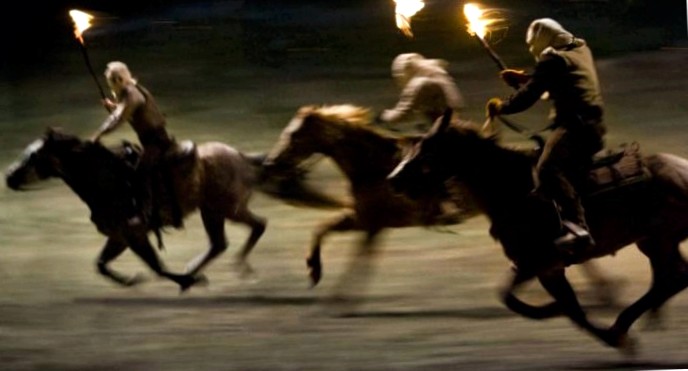
All pictures: Sony
Liberation cinema: Quentin Tarantinos so entertaining like highly policies Western "Django Unchained"
Red and Weib: Blood splashes on a cotton blood, once in this movie. A delicate, pracier beam, no fontane as in "Kill Bill". Instead of cotton it could also be a cherry blood, Asian asthetics. Never does this movie look so outrageful as at this moment. Red on the woman you will often see, because they are the wins who have to bleed here, finally.
As in "Inglourious Basterds" (Only a dead Nazi is a good Nazi) nearly all German pigs were, so here is: almost all sowing are pigs. Almost 60 years ago experienced exactly 60 years "Blown by the wind" his Germany premiere. Now Quentin Tarantino creates in his preserved asthetics of the transition, the Old South-cliches Hollywoods to overwind. Maybe Django Unchained overheap is his best movie.
About a good half hour, the basic constellation is established and it comes to a few seconds pure, from all narration completely released motion cinemas: the two main characters, Dr. King Schultz, a former dentist, and the title dog Django ride side by side from a muddy city wide, into nature, more precisely: in a mythical western landscape.
Schultz and the Negersklave he has fallen together in the winter of 1858/59, two years before the Curger war, to the bouncardjagermannerbund and are filled with the morally high mission to let the criminal hunt in the early year and in Mississippi the Mrs. Djangos at all price free from slavery.
It costs only one camera swing combined with overshoot, as they are far out of the city and on the way into a heatless desk, in the background one sees a snowy tall mountain. Within a few seconds they ride in the like, similar, but certain stepped pace of their horses through a forest, a deep snow landscape, past a lake.
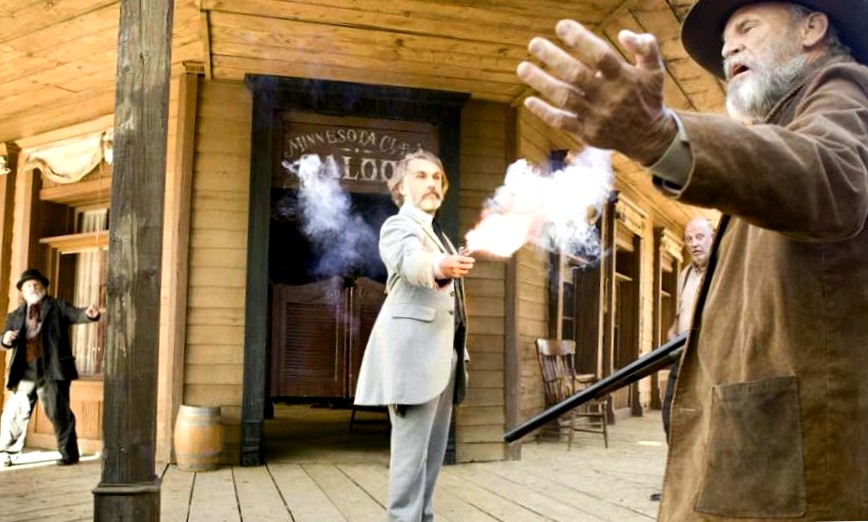
Archaic beauty of unpleasant nature, combined with the beauty of the elegant camera movement, the perfect movie cuts and a nostalgic music — an asthtic unit that remains aware of the classic western, and its end fully aware of the pictures of the Spaghetti Western as well as New Hollywoods clarified Western revivals, such as Robert Altmans "MC Cabe MRS. Miller".
The beauty of these scenes of two manners in motion are still surprising some other, no less successful, no less cinematically perfect moments in this movie. Again, Tarantino and his audience gonnarts gone to such loafness and gives, though he recognizably believes in words and dialogues, his film towards the power of the pictures.
Karl May meets Sergio Leone and the Nibelungen
These two main characters, social tourists, around Tarantino once again a rich arsenal of impressive, characterized figures characterized in few pictures and saws praisis, are basically enough. "Django Unchained" is their story; The history of these two individuals, who are committed to a joint journey, in the course of one to the teacher of the other. During the journey, you will be both, in a very different way, in the end liberation and the elevation. They will meet rogues and defeat — like the slave holder Calvin Candy (Leonardo di Carpio in an abysmal appearance), like a whole corridor of Ku-Klux clan racists caught "Big Daddy" (Don Johnson).
One is Django, played by Jamie Foxx. A black slave, who committed the sundes, to love and marry — what the breeding better "Human" Committed biopolitics of the racist US slave holder company actually prohibited -, and, worse, in the eyes of his sowing owners, to think. For punishment, he was sold like his bride. And now, this Django has only the goal of freeing the woman he loves from the hands of the racists of Mississippi and to throw themselves to those who have quenched them and him. The women’s picture this time is the weakest of all Tarantino movies: there is no ailing here, "strength" women.
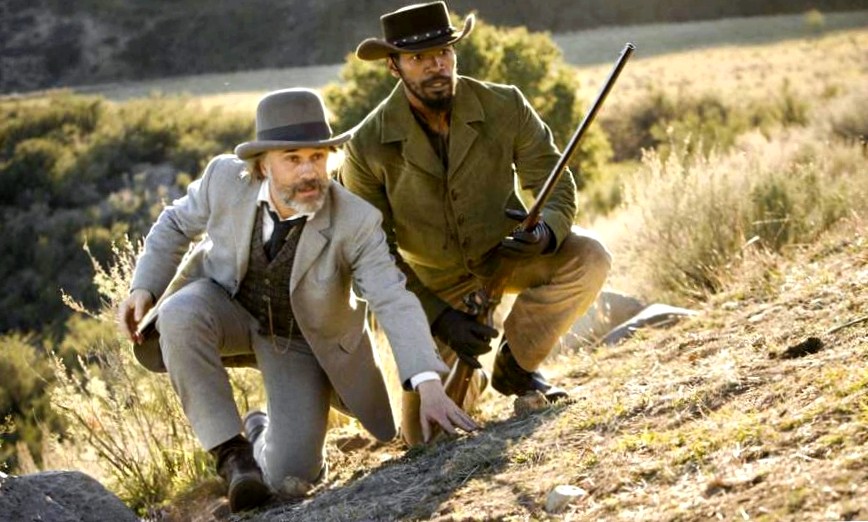
The other, which is undoubtedly complex figure of the two, is the calfly cynical head money Jager. King Schultz. He first frees Django because he needs him to take a lucrative prey, but soon he recognizes his "Natural talent" and teach Django the work of the head money Jager. Schultz, played by Christoph Waltz as in gestus and elaborated, highly explosive speaking-like, ethically but to the positive version of his oscarpramed appearance as "Jewish" Hans Landa in Tarantino "Inglourious Basterds", Acts as a Karl-May-Roman emerged: a German, dentist who has become a perfectly sliding bounty hailer in the wild west, but still the most favorable German beer drinks and pays the nibbling song at the campfire — a person under his cold-cynical Shell a romantic, good heart hides.
He is sympathetic to him and in the course of this growing friendship Schultz himself changed: he taut emotionally up, so to speak. "I have never given someone’s freedom, so I feel responsible for you", he says soon. And if this German doctor forms a perfect killer machine from the talented black, teaching the life as a freelance man and this skewer at the same time llabs — and changed his gourmet, one feels sometimes reminded of the story of Doctor Frankenstein and his rug reminded.
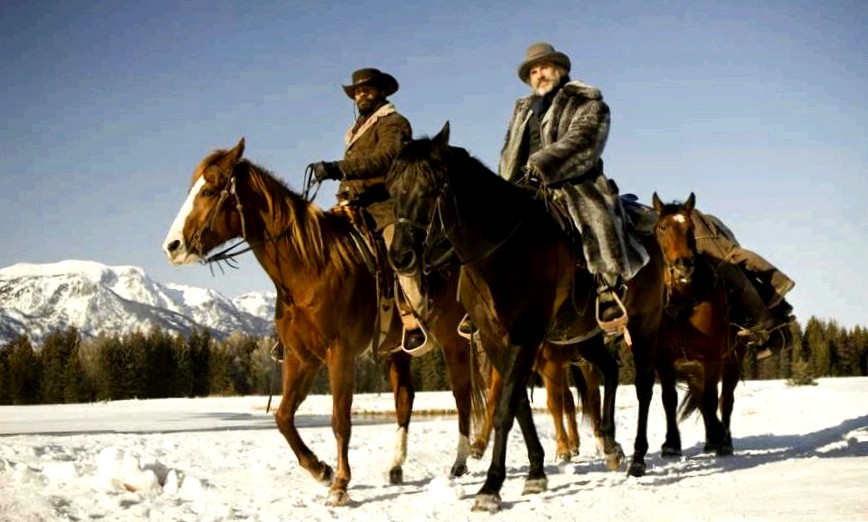
Other myths cited the director: Django’s bride was baptized by her German slave holders on the name of Brunhilde by Shaft — this is not only a cheaper joke of the Germanophilen Tarantino, Schulz also enters the deeper meaning as he paid Django the Nibelungenmythos and in him Discovered new Siegfried, who has to go through the Holle to liberate his brunide from captivity.
Thus, many of the incontinent dialogue passages of the 165-minute film, which is also aimed in its epic dimension at Tarantino Vorgio Leone, unfold in its second and third significance level. Quentin Tarantino began as a smart fanboy, whose intelligent and meaningful game fascinated with references from high and pop culture, which brought him a golden palm in 1994.
But Tarantino Siebter movie is 19 years after "pulp Fiction" far more than "only" An intelligent and meaningful game with references. "Django Unchained" is dialogue cinema in the usual, between comodie, genre-cinema and serious authors film-based style of this director.
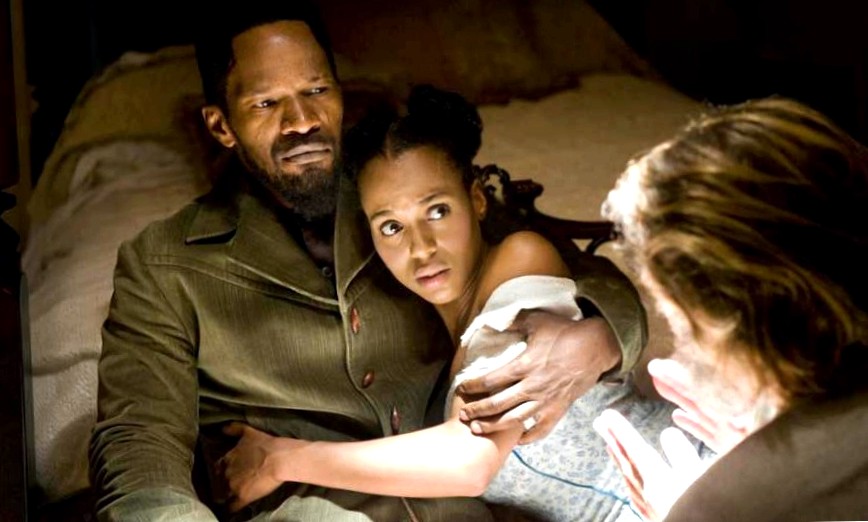
It is at the same time movement cinema with rapid action passages, elegiaclothes and perspectives. Again, Tarantino also paves the levels this time: "Django Unchained" Quotes the influential self-consuming "Django"-Row and with her the tradition of Spaghetti Western and 1960s cinemas like the "Blaxploitation"-Films of the early 1970s and exceeds them from the beginning.
Much more than you also like that "Django"-Film and Works by Sergio Leone ("Two glorious halls", "Once Upon a Time in the West") and Sergio Corbucci ("Django", "Picks pave his way") could say is "Django Unchained" highly political.
How to have not seen it in blockbusterskino
This is a movie to see the spab power, while he runs — and which offers the viewer spad in the backlog much fabric for reflection. Because this is also a portrait of the location black slaves in 19. Century and the all-related racism in North America, so entertaining as possible, but also so honest how to have not seen it in the blockbusterskino.
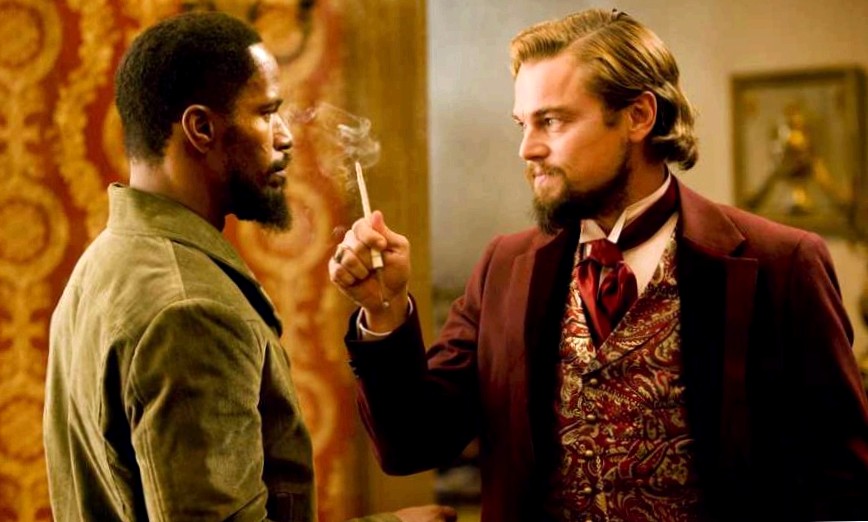
Without expelled into concerned, Tarantino shows the blood on the cotton fields, the brutlatat of the SudstateatenDyyll as well as through Hollywood Allzuoft. He shows the suffering of the blacks, the unimaginable cruelty, which made the slave holders on the black and the survival of the penalties: whipping for a broken egg, crashed by dogs after an escape attempt — which often deals with a saying from the Bible (not just out is justified to the Old Testament). They are the boses that are here "Sweet Jesus" Calling, the lashes of the White Trash whose body are sometimes covered with Bible pages.
Tarantino also complains of bigotry and self-righteousness. He shows the sources of the body already in the first image showing the scars of littered slaves in coarse adjustment; The chains, grinding with lace, metallic mouthpy and headcuffs — all here is historical.
Blood on the cotton fields
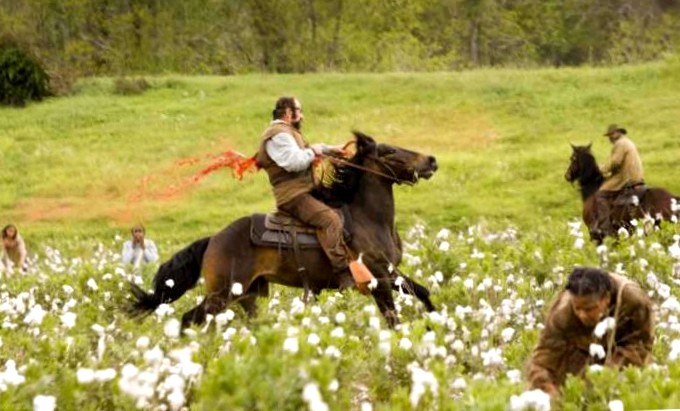
But not least, however, the sometimes green roofing also the collaboration of some black. The Samuel L. Jackson played a damon figure of Stephen, represented by the happening in the US, which in the US from some even "Black Holocaust" will be described. This is, in view of the sometimes self-evident liberalism of the Obama America, everything is highly high — and is also so debated in the US. Does not otherwise do that Tarantino, especially America, the mirror’s mirror and occurs, what the sowers of the black once antitang.
As "Inglourious Basterds" is also this movie a Rachedrama close to the desired fantasy. From violence, explosions and dying "the right one" Tarantino promises a kind of asthetic liberation, at least relief. This is unquestionably provocative. The power of the philosophical question, which represents the director — when violence, when a revenge is likely to be justified or as the last way out is legitimate — this finding does not depart.